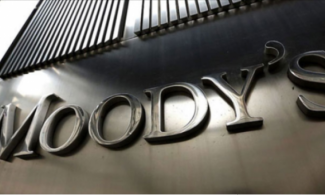
Moodys noted that the core of the private sector which the CBN wants deposit money banks to target, have weak or limited credit history, poor financial records and vulnerable balance sheets.

Financial analysis and credit rating firm Moodys, says the Central Bank of Nigeria’s policies mandating commercial banks to lend to the private sector which is still in a weak operating environment will create riskier loans.
The rating agency made the prediction against the backdrop of the CBN’s monetary policy Committee meeting, where the apex financial institution in the country emphasized on the need to increase loans to small and midsize enterprises as well as household borrowers.
“If Nigeria’s operating environment, which is still recovering from a 2016 recession, remains weak, increased private-sector lending will be credit negative for banks because their new loans are likely to be riskier,” it said.
Moodys noted that the core of the private sector which the CBN wants deposit money banks to target, have weak or limited credit history, poor financial records and vulnerable balance sheets.
“Increased lending – in particular to SMEs, whose balance sheets are vulnerable and whose financial records are poor, and to consumers and household borrowers, who have weak or limited credit histories – will likely create nonperforming loans (NPLs) down the road and slow banks' ongoing reduction of NPLs,” Moodys predicted.
An economic slowdown, a depreciation of the Nigerian naira, the local currency, or a downturn in oil prices, would exacerbate the asset risks.
With the new International Finance Reporting Standard (IFRS) that mandates commercial lenders to reserve more funds to cater to non-performing loans, Moodys observed that the NPL’s in the system were reduced by 24 per cent in 2018 and that gain stands to be eroded with the new directives being issued by the CBN.
The researchers recalled that the CBN had issued three circulars ordering banks to ensure their loans are 60 per cent of their deposit from September, reduce the idle money kept with the CBN that can accrue interest from N7.5 billion to N2 billion and to stop buying treasury bills at an auction for their own accounts.
The firm noted that as a unit, the directives would not force an average Nigerian bank to create new loans but in unison would, ‘risk resulting in higher lending volumes and increased asset risks'.
Explaining the ‘asset risks,’ the researchers said bad loans made up 9.4 per cent of the DMB’s entire lending portfolio. They recall that at list 25 per cent of the loans given out by commercial lenders in 2018 skipped payment dates.
Moodys reminded observers that 30 per cent of loans held by these banks were owed by players in the cyclical oil and gas sector, while the lenders themselves are exposed by 40 per cent to foreign currency loans.